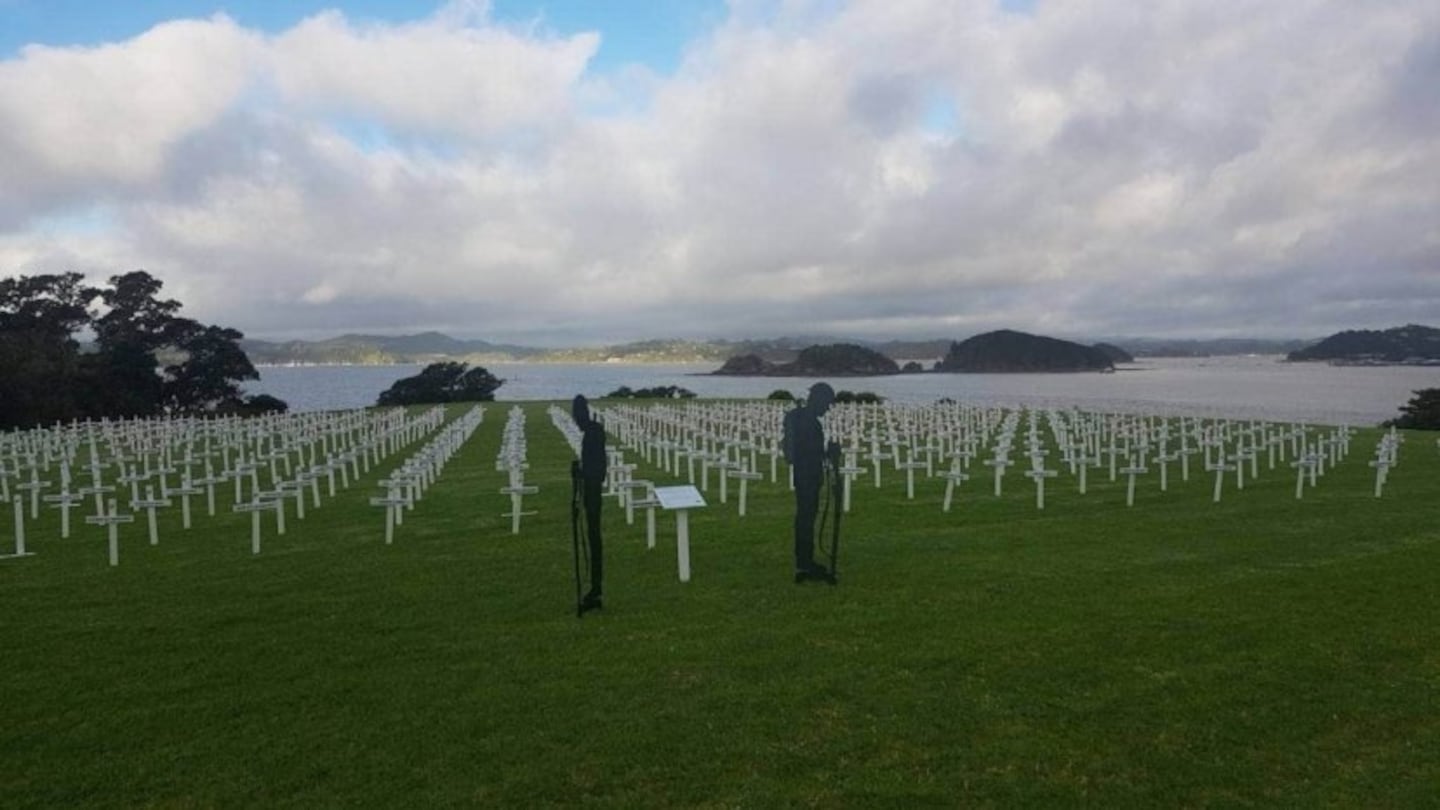A service will commemorate the fallen soldiers of the 28 Māori Battalion at the Waitangi Treaty Grounds this Anzac Day. Photo / Supplied / Waitangi National Trust
A special Anzac Day commemoration at the Waitangi Treaty Grounds will honour the fallen soldiers of the 28th Māori Battalion.
The Waitangi National Trust will partner with the 28 Māori Battalion (A Company) Taitokerau Association to host the service at the Upper Treaty Grounds on April 25.
The 28th Battalion, commonly known as the Māori Battalion, attended the centennial of the Treaty signing in 1940 before going to war in Africa and Europe.
"We feel honoured to be able to host this special Anzac Day Commemoration with Tā Robert Gillies presenting the 28 (Māori) Battalion Campaign and Battle Honours Memorial flag,” Waitangi National Trust chairman Pita Tipene said.
"A special thanks go to 28 Māori Battalion Taitokerau Association, Te Kāpehu Whetū, The Leadership Academy of A Company and The Fields of Remembrance Trust who have all been instrumental in helping this commemoration to take place."
The gates at Hobson Memorial at the Upper Treaty Grounds will open at 4pm for poppy making for tamariki. The event is free and kai will be available for purchase before and after the service.
A parade up the Nias Track by the Leadership Academy of A Company will start at 5pm, followed by the He Tikanga Karakia He Tohu Whakamaharatanga Anzac Day Commemorative Service in front of Te Whare Rūnanga.
A field of remembrance, made of 569 memorial crosses with the names of Māori service personnel killed in action and buried overseas, was laid on April 19 and will remain in place to view post-Anzac Day.
Tā Robert Gillies is the last surviving member of the 28 (Māori) Battalion.
He will present the 28 (Māori) Battalion Campaign and Battle Honours Memorial flag where it will rest as a monument to the Battalion’s fallen hōia (soldiers) who never returned home.
"Anzac Day allows the opportunity to acknowledge the contributions of all New Zealanders during times of war,” Tipene said.
"Men, women and children all played their part, either on the front line or on the home front, supporting those who went to war while ensuring the country, marae, and whānau were in the best shape possible. "
-Stuff


